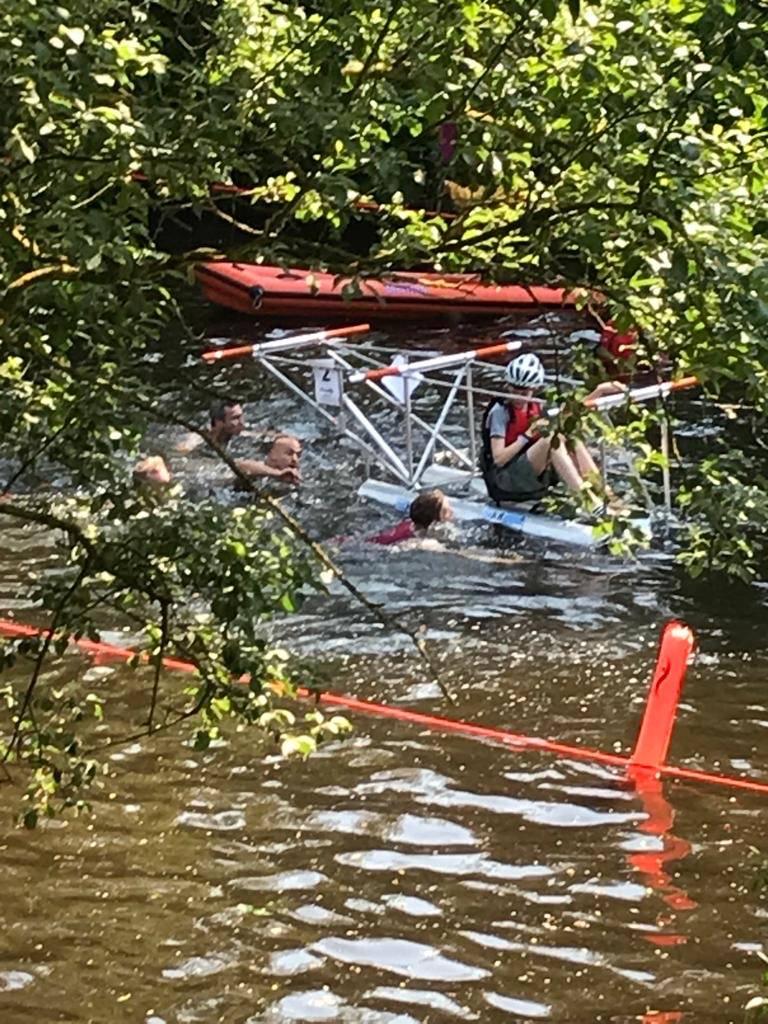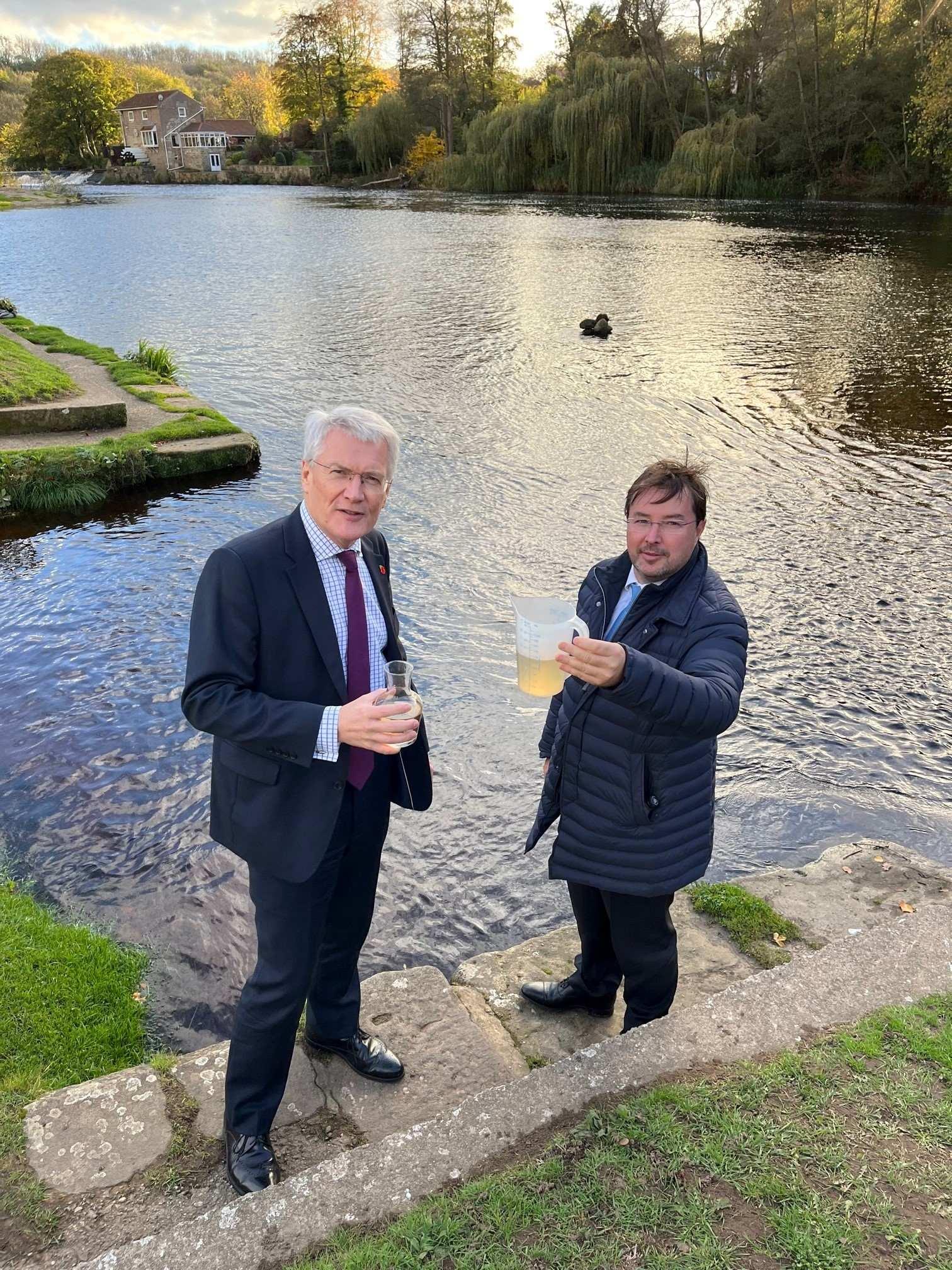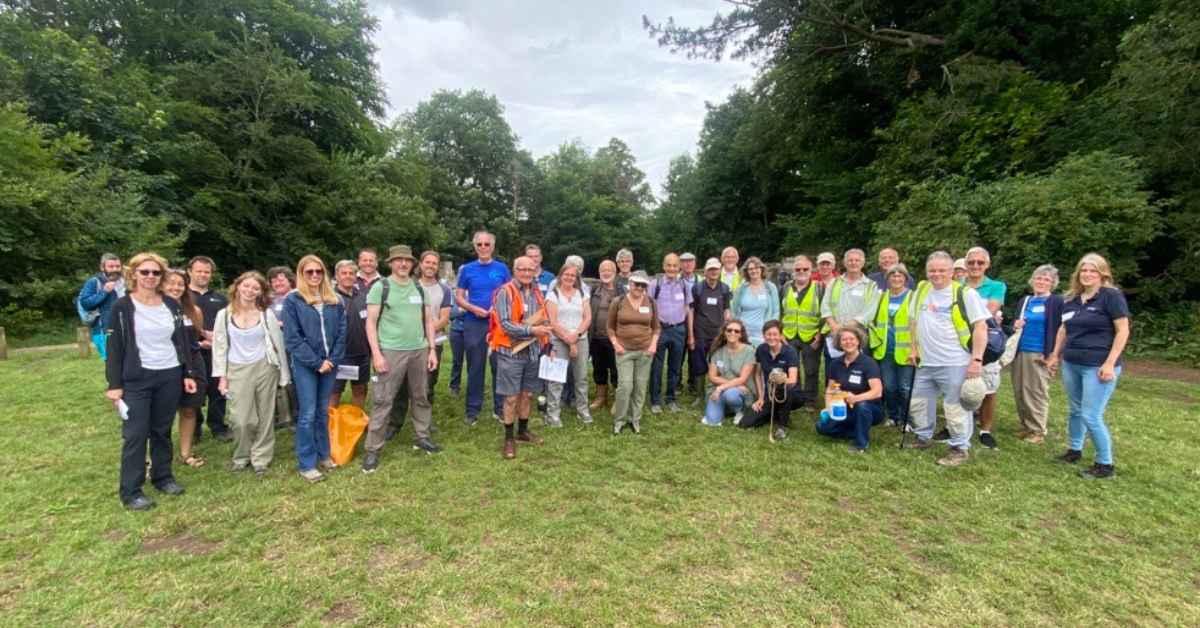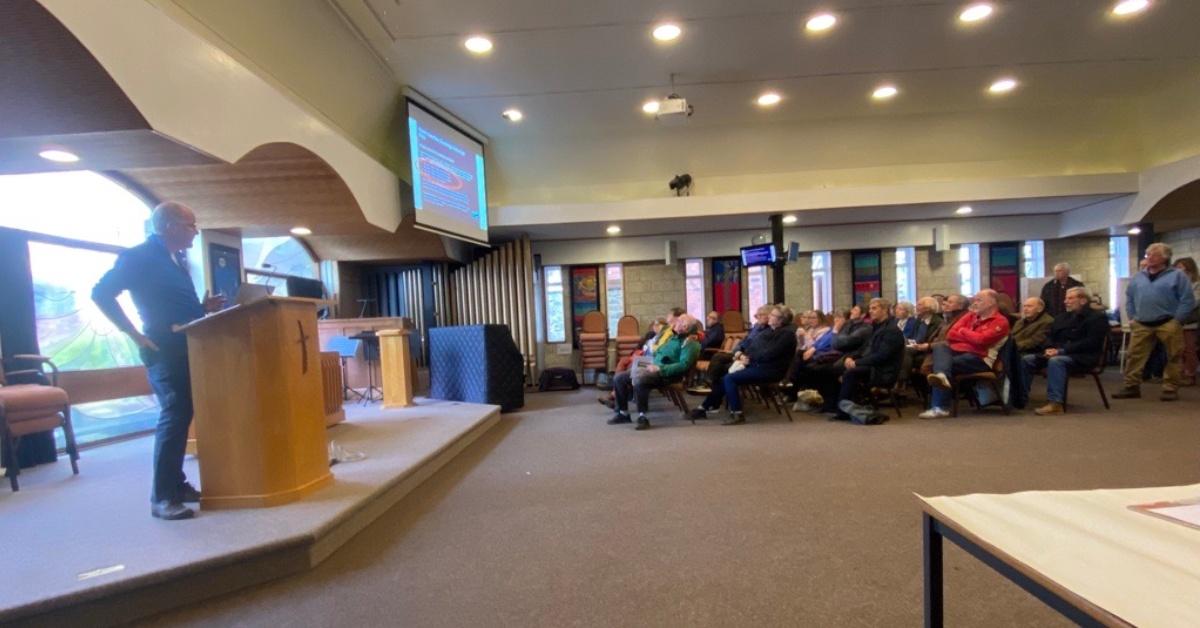Subscribe to trusted local news
If you are accessing this story via Facebook but you are a subscriber then you will be unable to access the story. Facebook wants you to stay and read in the app and your login details are not shared with Facebook. If you experience problems with accessing the news but have subscribed, please contact subscriptions@thestrayferret.co.uk. In a time of both misinformation and too much information, quality journalism is more crucial than ever. By subscribing, you can help us get the story right.
- Subscription costs less than £1 a week with an annual plan.
Already a subscriber? Log in here.
27
Dec 2023
No 9: River Nidd pollution and politics take centre stage

In this article, which is part of a series on the 12 stories in the Harrogate district that shaped 2023, we look at how the River Nidd rose up the political agenda this year.
National concerns about rivers were magnified locally in a year of intense focus on the River Nidd.
The state of the Nidd has become a major issue in recent years amid reports of bathers falling ill with sickness and diarrhoea and wider pollution concerns.
It led anglers, academics, conservationists and members of the public to set up Nidd Action Group to campaign for long-term improvements on the river, which is a tributary of the River Ouse that flows through Pateley Bridge, Birstwith and Knaresborough before meeting the Ouse at Nun Monkton..
The group bookended 2023 with two public meetings in Knaresborough. In between there was unprecedented activity that included water sampling and a campaign to achieve bathing water status.
The need to act was starkly highlighted in May when Professor Peter Hammond, a mathematician who analyses data on sewage discharges, published research showing the equivalent of 317 Olympic pools of raw sewage was discharged into the River Nidd at four sewage treatment works at Pateley Bridge, Harrogate, Darley and Kirk Hammerton in 2020.
The following month Knaresborough Lions, which organises the town's joyfully insane annual bed race, issued a warning urging participants to “keep your head above water”.

Bed race competitors were told to keep their heads above water.
During summer, scores of volunteers monitored usage of the Nidd at Knaresborough Lido as part of the bathing water campaign led by Andrew Jones, the Conservative MP for Harrogate and Knaresborough.
Water quality has become a highly charged and politicised issue and not everyone welcomed Mr Jones' campaign.
Tom Gordon, the Liberal Democrat parliamentary candidate for Harrogate and Knaresborough, made rivers one of his main campaigning issues in 2023. He said local waterways were “being pumped full of raw disgusting sewage" under the Tories' watch and accused water firms of awarding bosses "insulting pay-outs" after it was revealed Yorkshire Water paid £2.09 million to four executives in the year ending March 2023.
Mr Jones said he was taking a pragmatic approach to tackling an important local issue that is as much about farming and ancient sewers as government policies.
He even called for a parliamentary debate on the subject in January, when he told MPs:
Mr Jones' bathing water campaign focused on Knaresborough, where leisure use of the Nidd is at its highest. There is an large wild swimming group, Lido bathers and boating on Waterside, as well as angling and riverside holiday homes.
If the bid, which the government is expected to adjudicate on in spring, is approved then agencies will be required to take measures to clean the Lido that should impact a much wider stretch of the river.

Andrew Jones (left) with the owner of Knaresborough Lido.
Besides the bathing water bid, action group volunteers organised two rounds of water sampling along the entire length of the Nidd in August and October to establish scientific data on water quality.
The results confirmed high levels of the faecal bacteria E.coli. in much of the river. Tributaries in the middle and lower Nidd catchment, including Ripley Beck, Oak Beck and Crimple Beck, had the highest concentrations of E.coli, with Bilton Beck the worst.

Nidd Action Group volunteers learning to take water samples.

Sampling at Bilton
The results were discussed at the action group's December meeting, at which some of the early fervour to tackle pollution had given way to a more hard-headed and strategic long-term approach.
The presence of Yorkshire Water at the meeting may have surprised some, but many felt the company was an integral part of whatever plans are drawn up.
Professor Jonathan Gray of the Wild Trout Trust told the meeting the creation of channels that took the river off its natural flood plain "with hindsight was not a good idea" and spoke about the need to reverse this.

Nidd Action Group's meeting in March.
David Clayden said there had been some initial "naivety" about what could be achieved and both he and James McKay, a Knaresborough resident and academic who has been at the forefront of analysing the water samples, agreed a lot has been achieved in 2023 — but it will take time for this to filter down to actual measures that improve water quality.
Megan Godden, the wild swimming representative on the action group, said people entering the Nidd should avoid swallowing water at all costs and consider avoiding it for a couple of days after heavy rainfall when e.coli levels are at their highest. But she was optimistic action could eventually make a difference.
Maddy Wright, a PHD student at Leeds University, said

The clean-up campaign was boosted in November when Yorkshire Water agreed to pay £1 million for polluting Hookstone Beck in Harrogate in 2016.
Half of the sum was awarded to the Yorkshire Dales Rivers Trust, which will use what is now known as the iNidd project to clean-up the River Nidd. The name is similar to the iWharfe campaign on the River Wharfe.
Charlotte Simons, a senior project manager at the trust, said:
River quality is a murky business.
Read more:
- Harrogate and Knaresborough MP submits River Nidd bathing water status bid
- River Nidd clean-up campaign boosted by £500,000 from Yorkshire Water
- Harrogate Lib Dems criticise Yorkshire Water £2m executive payments
- River Nidd sampling reveals high levels of faecal bacteria
0